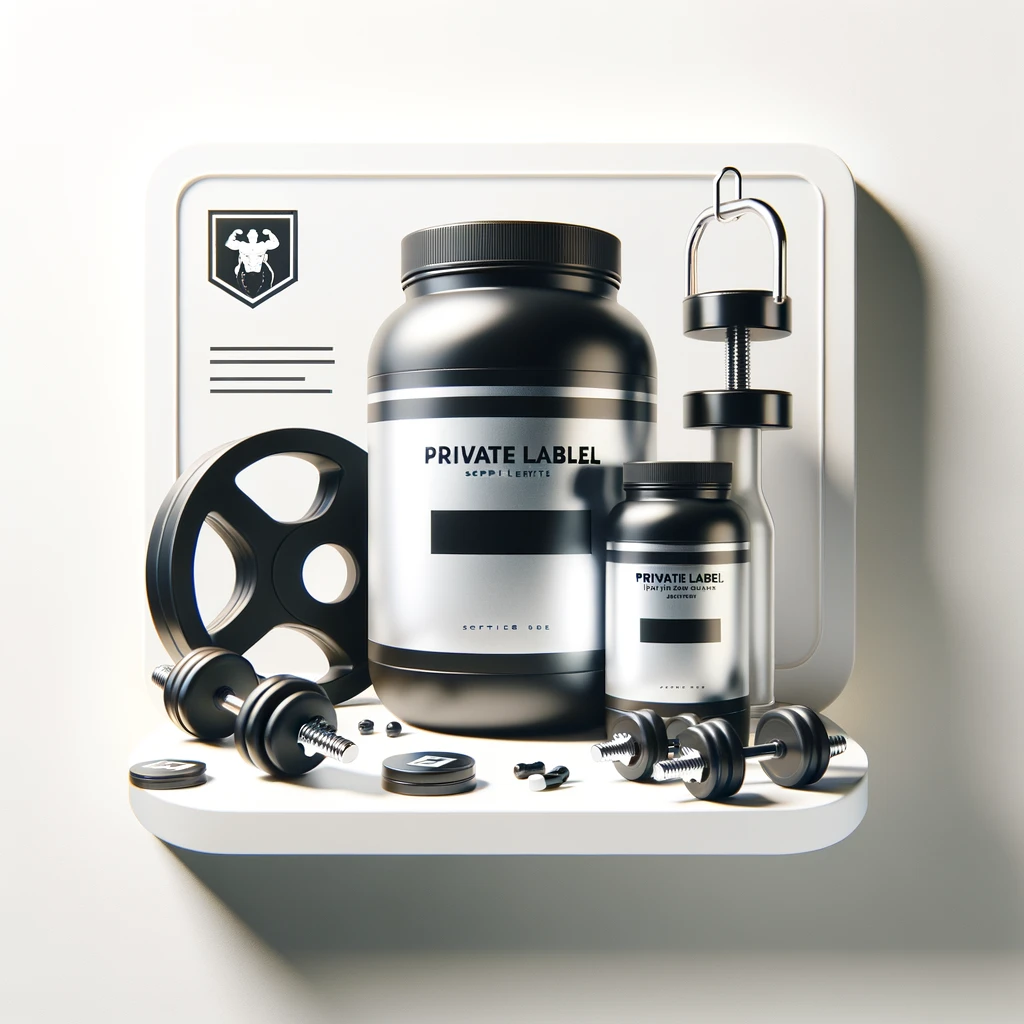Private label fitness supplements have emerged as a popular choice for both consumers and businesses looking to enhance their brand presence in the health and wellness industry. These supplements allow you to create unique products tailored to specific market demands, giving you a competitive edge without the need for extensive research and development.
Some of the links in this post may be affiliate links, which help support our site at no extra cost to you. We only recommend products we truly believe in and think will add value to our readers. Click here to check the latest price and reviews on Amazon! https://amzn.to/4hwGaqX
Table of Contents

By partnering with manufacturers, you can access high-quality formulations while focusing on branding and marketing strategies. This model not only streamlines the process of entering the supplement market but also enables you to offer products that resonate with your target audience.
As the demand for personalized fitness solutions continues to grow, private label options can help you meet consumer desires for unique and effective supplements. Exploring these opportunities could significantly enhance your business potential in this booming sector.
Understanding Private Label Fitness Supplements

Private label fitness supplements offer a unique opportunity for brands to create customized products that meet specific market needs. This section explores the market landscape, advantages of private labeling, types of supplements available, and regulatory considerations you should keep in mind.
Market Overview
The private label supplement market has grown significantly, accommodating diverse consumer preferences. Brands can leverage this growth by offering specialized products that cater to niche audiences.
Market research indicates that consumers are increasingly seeking products that align with their personal fitness goals. The demand for quality ingredients and transparent labeling has surged, prompting brands to invest in private label options.
The competitive landscape is evolving, making it essential for companies to differentiate themselves through branding and product offerings. Collaborating with contract manufacturers can help streamline the development process while ensuring quality.
Benefits of Private Labeling
Choosing private labeling provides distinct advantages. You maintain control over branding, allowing you to create a unique identity for your products. This differentiation can foster customer loyalty and enhance market presence.
Private label supplements often come with lower production costs. Brands can enjoy higher profit margins as they eliminate the middleman. This cost-effectiveness can be passed on to consumers, making your products more appealing.
Additionally, you have the flexibility to tailor formulations to meet specific consumer demands. This capability enables you to quickly adapt to trends and preferences, keeping your offerings relevant in the fast-paced fitness market.
Click here to check the latest price and reviews on Amazon! https://amzn.to/4hwGaqX
Types of Supplements
The range of private label fitness supplements is broad. Common categories include:
- Protein Powders: Available in various sources, like whey, plant-based, or casein.
- Pre-workout Formulas: Designed to increase energy and endurance during workouts.
- Vitamins and Minerals: Essential micronutrients for general health and well-being.
- Fat Burners: Supplements aimed at aiding weight loss efforts.
You can choose to focus on a specific category or offer a diverse product line. This decision will depend on your target audience and market research.
Specialization within niche markets, such as vegan or organic supplements, can further enhance appeal. Understanding consumer preferences will help you make informed choices about the types of supplements to offer.
Regulatory Considerations
Compliance with regulations is crucial when launching private label fitness supplements. Familiarize yourself with the guidelines set by the FDA and other governing bodies.
You must ensure that all product claims meet legal standards to avoid misleading consumers. Ingredients should be sourced responsibly and labeled accurately, including any allergens.
Quality control is another important factor. Implementing rigorous testing and certification processes is essential to maintain product integrity. Collaborating with reputable manufacturers can help ensure compliance and quality throughout the production process.
Developing Your Supplement Line

Creating a private label fitness supplement line requires attention to key areas. Focus on product formulation, choosing the right manufacturing partners, effective branding and packaging, and strategic marketing.
Product Formulation
To develop a successful supplement line, you must start with product formulation. Identify the specific fitness goals you want to target, such as muscle gain, weight loss, or endurance. Collaborate with nutritionists or formulators to create effective blends using quality ingredients.
Ensure your formulations meet safety and regulatory standards. Research current trends and consumer preferences for optimal ingredient selection. Testing your formulations through third-party labs can provide transparency and build trust.
Manufacturing Partners
Selecting reliable manufacturing partners is crucial for your supplement line. Look for companies with experience in producing fitness supplements. Verify their compliance with cGMP (current Good Manufacturing Practices) to ensure quality and consistency.
Request sample products and conduct thorough evaluations. Assess their production capacity and lead times to ensure timely delivery. Building a strong relationship with your manufacturer can facilitate communication and address potential issues promptly.
Branding and Packaging
Branding and packaging play significant roles in attracting customers. Develop a strong brand identity that reflects your values and target audience. Choose a memorable name and logo that resonate with potential buyers.
Packaging should be both functional and visually appealing. Use materials that maintain product integrity while highlighting your brand’s unique selling points. Clearly display ingredients, directions, and benefits on the label to inform consumers.
Marketing Strategies
Effective marketing strategies will help promote your supplement line. Identify your target audience and tailor your messaging to their needs. Utilize social media platforms, influencer partnerships, and email marketing to reach potential customers effectively.
Offer promotions, samples, or bundles to entice first-time buyers. Engaging content, such as workout tips or nutrition advice, can position your brand as a trusted resource. Continuously analyze the performance of your marketing efforts and adjust your strategies accordingly.


